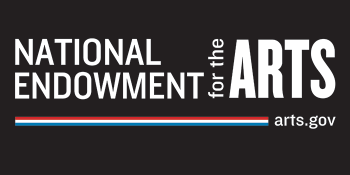I grew up in what is now called the print era. My siblings and I were nourished by a wealth of newspapers, magazines, and books with which our parents filled our home. For us, reading was as much a part of family life as dinner. I still remember evenings leaning over an empty dining room table, immersed in the broad pages of the state's metropolitan daily. If my parents regarded much of television as empty distraction, print was always esteemed. That emphasis fostered in me a life-long reverence for the written word.
It was a love that later led to professional work as a copywriter, editor and freelance journalist. Among other writerly pursuits, I'm still engaged in byline journalism through different outlets, including people-powered sites like The Rapidian. I do so because I enjoy crafting news and features and appreciate the service it offers readers. And because it keeps me connected -- to community, to a range of public leaders and personal characters and to the flow of local and global history.
Part of that history is the advance of digital media and the retreat of print. In the growing void left by fading newspapers, citizen journalism has emerged as an innovative response to the public's information needs. By its nature, it has brought a fundamental change to the old relationship between news producer and consumer. Where once we the readers were, well, readers only, we now have rapidly expanding opportunities to both create and interact with content.
That's a powerful tool shifting into public hands, and one that presents challenges along with opportunities. But other names given to the phenomenon suggest even deeper meaning and potential. Grassroots media. Participatory media. People's media. Those descriptions point up the greater promise of citizen journalism.
The digital evolution of media platforms has morphed into a DIY movement of unprecedented scope. Widening the viewpoint from traditional media gatekeepers to the person on the street has revolutionized information access, flow and interpretation. The breadth of its application is dramatic, and both its subjects and its impact can range from hyperlocal to global, sometimes leaping overnight from one scale to the next. In that vein, New York Times veteran Nicholas Kristof contextualizes citizen journalism's impact on recent historic events here and abroad:
"[H]aving people shooting videos everywhere provides a useful level of accountability. A lot of people including me were really taken aback by the videos of police violence during Occupy Wall Street. A decade ago nobody would have known about that because there wouldn’t have been a reporter there and even if someone did write about it, it wouldn’t have been that dramatic...
"[I]n Syria, widespread video does provide some constraint on a government if it knows that if it massacres people, there will be video of that. They may still decide to massacre people, but it raises the price."
Those are some of the achievements of people-powered press on the macro level. Closer to the ground, hyperlocal start-ups like The Rapidian are popping up in ever-larger numbers across the nation and beyond. These new platforms offer multiple benefits. They provide a vital service at a time when print's local coverage has been blinking out star by star from news industry skies. Expanded content capacity allows them to explore unique corners and vistas of their communities through diverse subject areas. The creation of hyperlocal bureaus offers neighbohoods, nonprofits, schools and various interest groups a new voice and strengthened identity. And by virtue of the medium, they can transcend the local by showcasing the formerly lesser-known to a global audience.
Beyond those values, citizen journalism is introducing the art of reporting to a cross-generational demographic in numbers never seen before. It's truly an exciting chapter of the information age, with every new wrinkle in communication-tech opening creative opportunities for multi-media reportage, by anyone with enough passion and curiosity to try it.
This highlights what may be the greatest gift of the citizen-reporter movement. As journalism prof Jay Rosen explains, journalism gets better as more people do it. "The more people participate in the press, the stronger it will be." On the surface that may sound like an obvious truth, if one obscured over generations of big-media consolidation. But historically speaking, the genetics of today's new-media phenomenon may not be all that new. After all, our nation's origins were catalyzed in part by early pamphleteers and small presses, operated by everyone from self-educated blacksmiths to Founding Fathers. Their vision of a free press as a cornerstone of democracy can only be buttressed by the proliferation of perspectives freely available today. So from the angle of the body politic, we may have come full circle from printing press to website.
To be fair, the sheer volume of new voices rising everywhere requires greater effort to adjust the signal-to-noise ratio. There will always be ample need for fact-checkers and analysts, in-house and independent. Even so, critics from traditional media have themselves have become an organic part of the citizen journalist movement, by virtue of joining the conversations it sparks. That cross-pollination is a growing trend, as lines between traditional and digital media blur evermore.
For me personally, participating in citizen journalism is more than a hobby. I've made a living in part through professional writing. But being a citizen reporter for The Rapidian and its contemporaries makes me part of a truly remarkable experiment in media democracy, led by dedicated, visionary people who recognize the unique potential that lies before us. It's a chance to be a stakeholder in the reinvention of journalism at the early stage of a new century. Just as importantly, it offers one a unique and ongoing role in the unfolding of one's community, from the inside out.
That kind of opportunity doesn't arrive often. History happens on its own schedule. If we're engaged enough, we can choose to do more than observe it.
The Rapidian, a program of the 501(c)3 nonprofit Community Media Center, relies on the community’s support to help cover the cost of training reporters and publishing content.
We need your help.
If each of our readers and content creators who values this community platform help support its creation and maintenance, The Rapidian can continue to educate and facilitate a conversation around issues for years to come.
Please support The Rapidian and make a contribution today.


